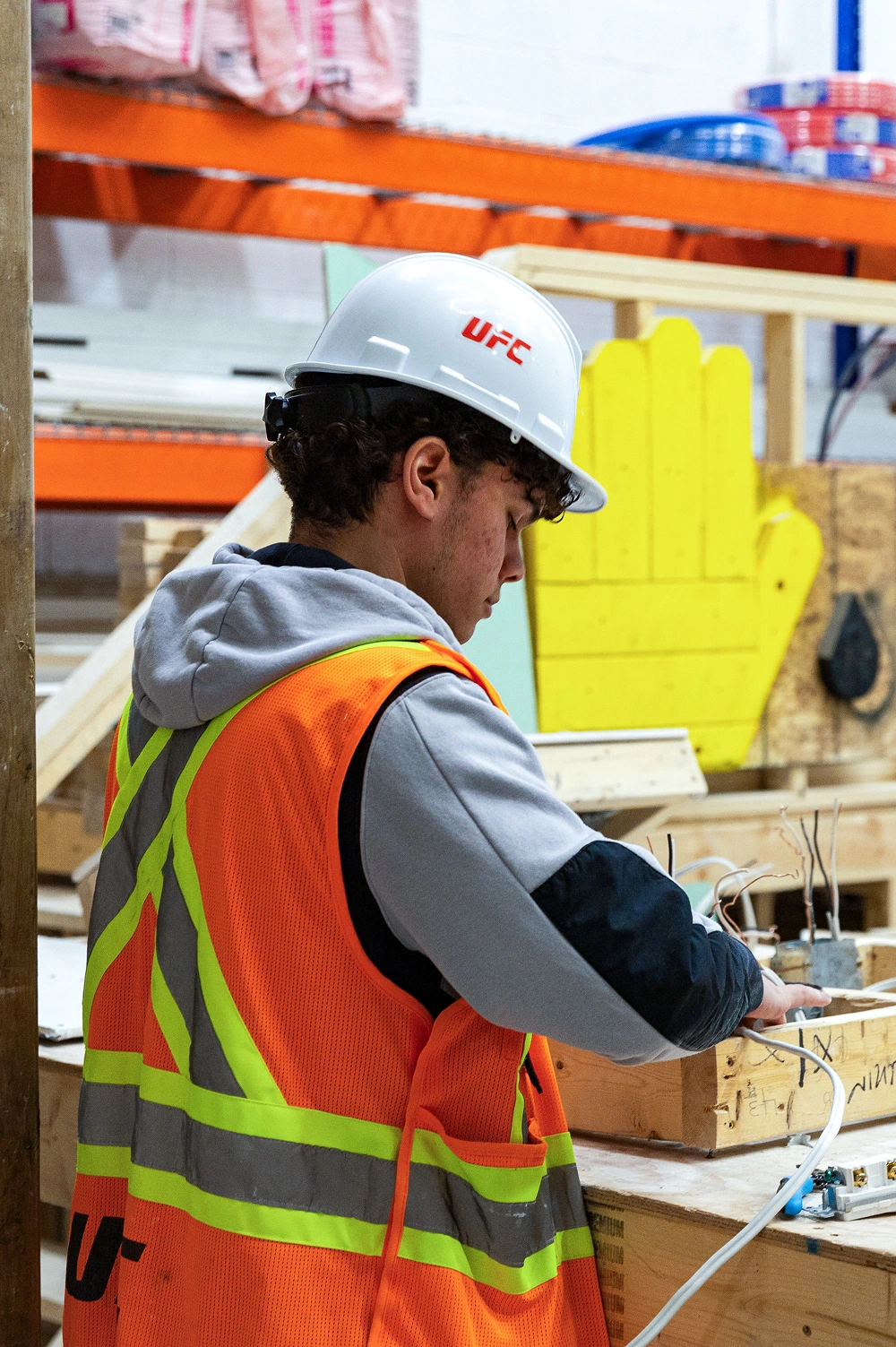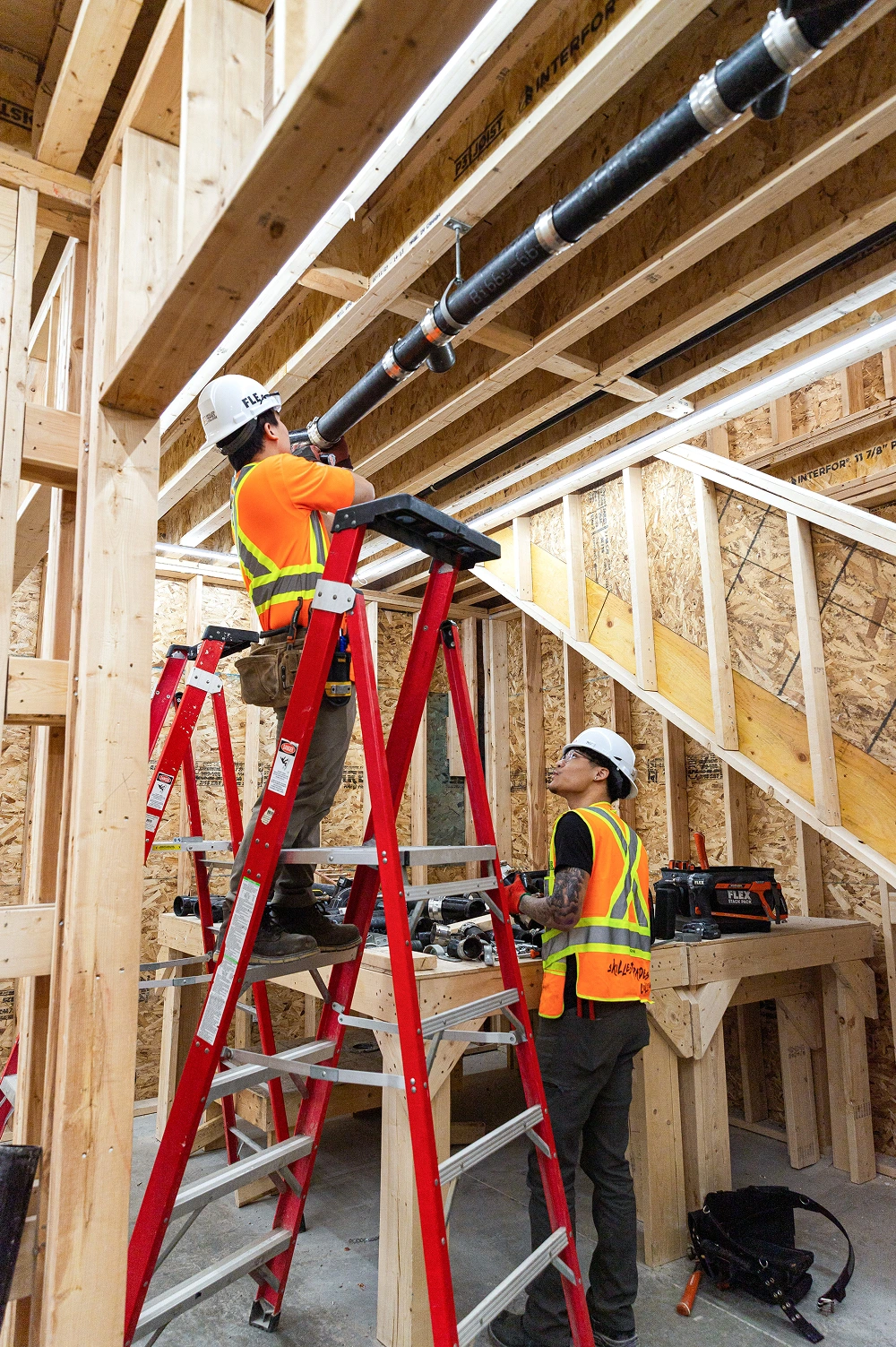Top 11 Benefits of An Apprenticeship

Published On
24-01-2023

When pursuing a construction career, there are many pathways and specializations to consider. Ultimately, it is all about finding the right fit for your interests and skillset. Some of the key sectors in the construction industry are:
No matter your stage of life—whether you’ve just graduated high school or are thinking about changing careers—anytime is a good time learned a skilled trade. Once you’ve discovered which one interests you, it’s time to research the specific job requirements.
What can you expect from a career in construction? How should you get started? Keep reading to find out!
If you’re planning to pursue a career in the construction industry, you’ll have no problem securing a stable job with a reliable income. In Canada, there are over 250 large infrastructure projects valued at 25 million dollars. Thus, there’s a constant need for workers to continue the development of said projects.
The best first step is to take up a pre-apprenticeship program. The Intro to Home Renovation Program at Skilled Trades College was designed to meet the current need for trade workers in the country’s booming construction industry.
But what are the expectations for construction workers? What does a construction worker do on a daily basis?

Generally, construction workers perform manual labour and are responsible for operating machinery and equipment in building structures. Additionally, their duties may include:
On average, a construction worker can expect to earn $44,850 annually or $23 per hour. For entry-level positions, one can earn at least $35,100 per year. More experienced workers make at least $77,980 annually.
While researching which trade to pursue in the construction industry, ask yourself the following questions:
Narrowing down your choices will help you plan your next career move better.
To get certified, prospective construction workers must have the appropriate training and experience. This includes:
Depending on the province or the career you’re pursuing, these prerequisites include:
Taking the right course while doing your apprenticeship can take you far in the construction industry. The Intro to Home Renovation Course at Skilled Trades College teaches students the necessary skills used in construction sites—from adding electrical systems, insulation, and masonry, to rough-in plumbing.

Once you’ve decided on a career path within the industry, and you’ve ensured that you meet the minimum educational requirements, you can now register as an apprentice.
As an apprentice, expect that you’ll have a lot on your plate. While you are earning a wage and finishing the required hours to complete your on-the-job training, you’re also a student and expected to take in-person classes.
It’s important to choose a trade school that teaches you the essential skills to succeed in your career path. At Skilled Trades College, trainees will learn how to use the necessary tools of the trade and the proper application of the techniques taught in class. Moreover, graduates of this program leave with safety certifications and fundamental training needed for their jobs.
After completing the apprenticeship and passing the certification exam, construction workers can apply for a Red Seal endorsement. This is a seal that indicates a tradesperson’s demonstrated expertise in their field and certifies that they have the knowledge required for the national standard in that specific trade. A Red Seal endorsement also allows the tradesperson to work anywhere in Canada.
Jumpstart your career in the construction industry by enrolling at Skilled Trades College! Break into Canada’s billion-dollar construction industry through our Intro to Home Renovation course and gain the essential skills to succeed in your chosen field.
The course will cover the basics, such as framing, drywall, taping, footings, rough-in electrical, and other relevant general construction work. Through simulated work environments, trainees can gain safety knowledge and hands-on practical experience.
Ready to start your construction career at an industry-recognized institution? Do you need more information about our other programs? Call us today!
9,281+
LIVES CHANGED

12,481+
WIRES PULLED

85,382+
2X4'S CUT

9,756+
PIPES LAYED

9,281+
LIVES CHANGED

12,481+
WIRES PULLED

85,382+
2X4'S CUT

9,756+
PIPES LAYED

9,281+
LIVES CHANGED

12,481+
WIRES PULLED

85,382+
2X4'S CUT

9,756+
PIPES LAYED
